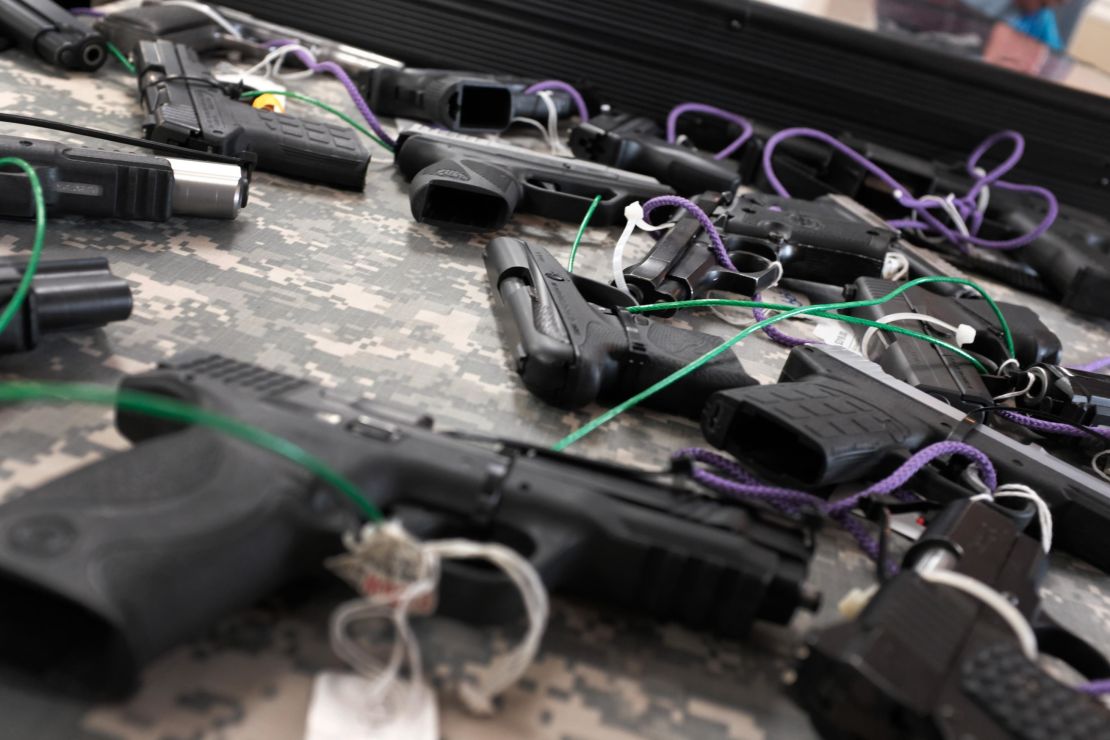An Illinois state legislator has proposed a measure that would require police to screen the social media profiles of potential gun buyers.
Illinois state Rep. Daniel Didech introduced the bill and told CNN that “the Parkland kids played a big role” in inspiring him to pursue the measure. He felt he and other lawmakers were taking a more proactive approach to preventing gun tragedies rather than only acting in the immediate aftermath of a mass shooting.
“Everybody’s demanding that we take action before the next mass shooting event,” Didech said. “It’s turned into a grassroots movement.”
Didech said his legislation follows a similar bill introduced late last year in the state of New York. Didech’s proposal is more modest, requiring Illinois gun buyers to only volunteer the handles of social media accounts, rather than asking buyers to also hand over their social media account passwords and allow authorities access to their browser histories, as the New York bill does.
In its current wording, Didech’s bill would require that police conduct a “search of purchasers’ social media accounts available to the public to determine if there is any information that would disqualify the person from obtaining or requiring revocation of a currently valid Firearm Owner’s Identification Card.”
He noted that his wife, a sixth-grade teacher, was regularly required to conduct active shooter drills in her classroom and had to field questions from students who would ask, “What should I do if I get shot?” or “What should I do if my seatmate gets shot?”
This week the bill was assigned to the House Judiciary-Criminal Committee for initial review.
The Giffords Law Center, which researches gun safety policy, currently gives Illinois a B+ on its gun laws, praising its background check, waiting periods and child access prevention law. The GLC highlights improvement areas that include licensing firearms dealers and requiring owners to register guns, as well as prohibitions on assault weapons and large-capacity magazines.

Representatives from the ACLU were skeptical about the measure. Rebecca Glenberg, a senior staff attorney for the ACLU of Illinois, told CNN the law was part of a “growing trend of authorities monitoring social media accounts. Whether a human or a computer does it, neither is free of bias.”
Glenberg questioned many of the specifics in the proposal’s current form. She said it didn’t delineate which social media accounts could be monitored. She also argued the state already had good ways to check whether prospective gun purchasers were legally “ineligible” to own firearms through records of mental health hospitalizations and felony convictions, noting individuals tend not to advertise that kind of thing on their profiles.
“It seems much more likely to end in profiling of people, rather than catching a possible school shooter,” Glenberg said.
Last month the University of Chicago Crime Lab released a safety pilot study it conducted with Chicago Public Schools. That study used social media monitoring to identify at-risk students and recommend them to intervention programs. The school system’s Office of Safety and Security monitored students through random keyword searches of public social media accounts. If they flagged a threat, they would refer it to the Chicago Police Department’s Gang School Safety Team.
The study’s analysis suggested that students attending high schools in the program “experienced almost 30% fewer shooting victimizations relative to students who attended comparison group schools.”
CNN has reached out to the Illinois State Rifle Association for comment.
Regarding the similar legislation in New York, the president of that state’s Rifle and Pistol Association told the Democrat & Chronicle, “This is the slippery search toward regulating all of our rights,” adding, “Isn’t posting on social media protected speech? This would put a chill on your voice and add a chill to your First Amendment rights.”




